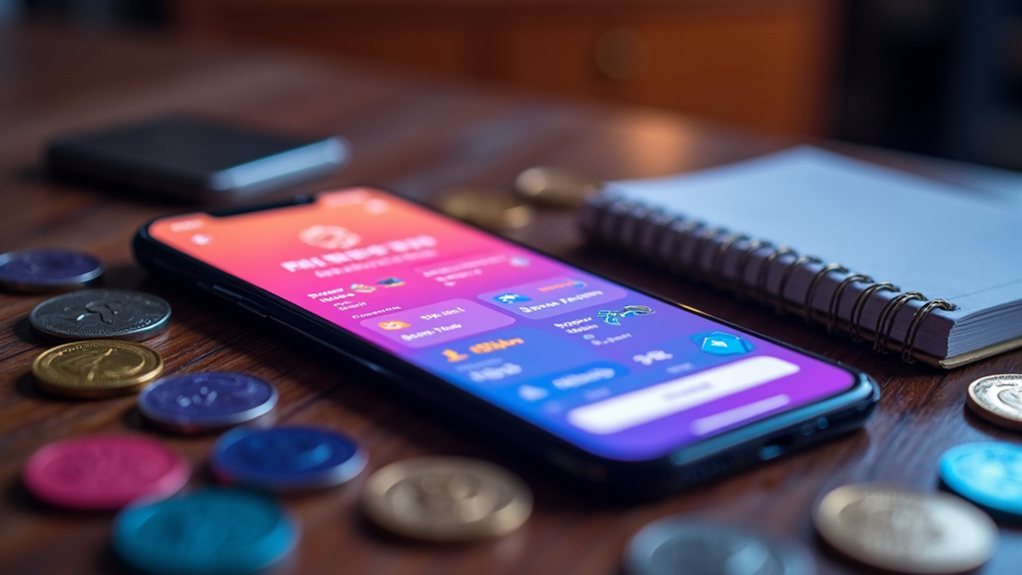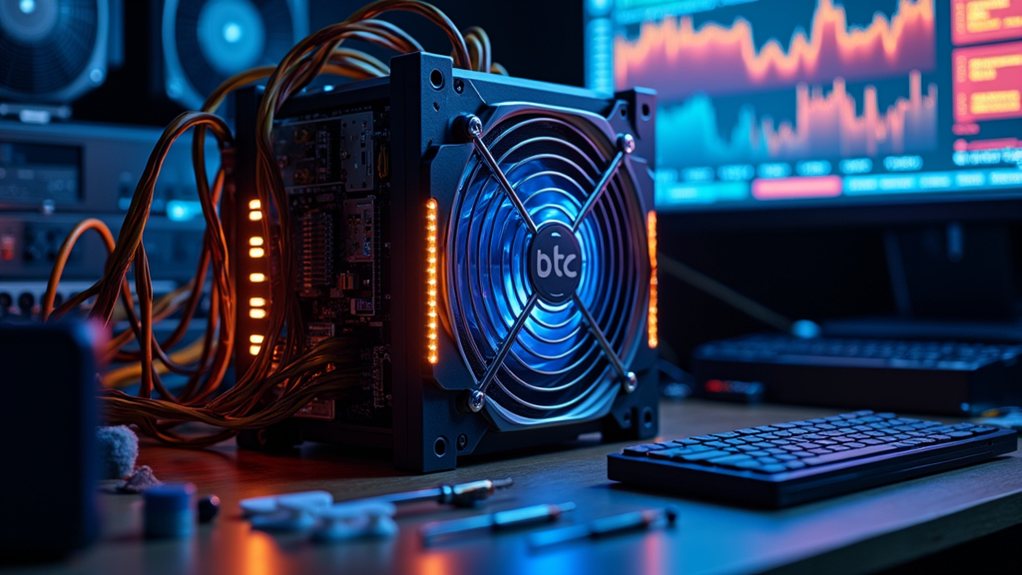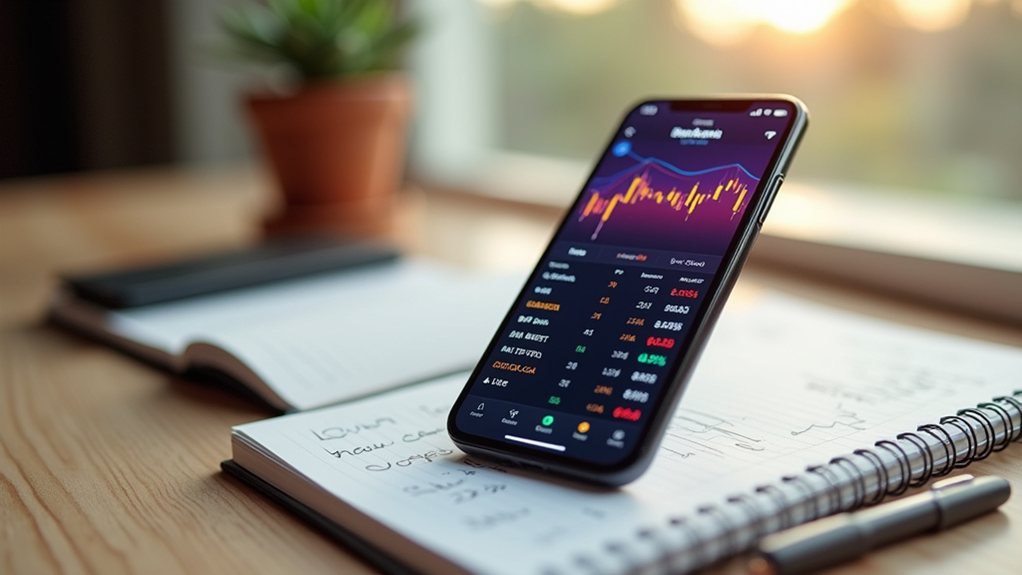DeFi wallets give users direct control over crypto assets without middlemen. To start, download a reputable wallet app like MetaMask or Trust Wallet, create a wallet, and securely store your seed phrase—seriously, write it down. Connect to DeFi platforms like Uniswap to swap tokens or Compound to earn interest. Always verify contracts before interacting, and consider a hardware wallet for large amounts. The crypto universe awaits those brave enough to explore it.

While traditional finance keeps users trapped in a maze of middlemen and paperwork, DeFi wallets offer a direct path to financial freedom. These digital gateways reveal a world where users control their own financial destiny. No more waiting for banker approval or paying ridiculous fees to move money. The process starts with downloading a reputable wallet app like MetaMask or Trust Wallet. Choose wisely—your crypto future depends on it.
Setting up a wallet isn't rocket science. Create a new one or import an existing wallet if you've already dipped your toes in the crypto waters. Then comes the most critical step: the seed phrase. Write it down. No, not in your Notes app. On actual paper. Store it somewhere safe—like, really safe. This string of words is your financial lifeline. Lose it, and your funds vanish into the digital ether. Forever. Not kidding. Remember that most wallets provide a 12-word seed phrase that serves as your only recovery method if you lose access.
With wallet in hand, it's time to join the DeFi party. Visit platforms like Uniswap or Compound and hit that "Connect Wallet" button. Your wallet app will ask for permission—grant it. Just like that, you're linked to the vast DeFi ecosystem. No credit checks. No identity verification. No nonsense.
Trading tokens is straightforward. Navigate to the swap section, pick your input and output tokens, enter an amount, and confirm. The blockchain handles the rest. Fees exist—welcome to the real world—but they're transparent. No hidden charges waiting to ambush your bank account at the end of the month.
For the more ambitious, providing liquidity offers a way to earn passive income. Deposit equal values of two tokens into a liquidity pool and receive LP tokens in return. These LP tokens are like golden tickets, generating yield while you sleep. Impermanent loss is a risk, sure. But nothing ventured, nothing gained.
Staking follows a similar playbook. Lock up tokens, earn rewards. Simple. Lending platforms let users deposit collateral and borrow against it—or lend out crypto to earn interest. DeFi enables global lending and borrowing without the barriers typically imposed by traditional banking systems. Just keep an eye on that collateral ratio. Get liquidated, and you'll feel financial pain like never before.
Security isn't optional in DeFi. It's everything. Never—and this means never—share your seed phrase. Use hardware wallets for significant holdings. Verify smart contract addresses before interacting with them. Review wallet permissions regularly. Self-custody wallets give you complete asset autonomy without depending on centralized exchanges that could be hacked or shut down. The crypto landscape is filled with digital predators waiting for easy prey.
DeFi wallets are powerful tools, but they demand respect. Use them wisely, and they'll unveil doors to financial opportunities most never even know exist. Ignore basic security, and they'll teach expensive lessons. The choice is yours.
Frequently Asked Questions
How Do I Recover My Wallet if I Lose My Seed Phrase?
If a seed phrase is lost, recovery options are limited.
Truth is, there's often no way back. That's crypto for you. Hard truth.
Some wallets offer social recovery through trusted contacts.
Multisig setups require multiple keys.
Custodial services might help.
Professional recovery services exist as last resorts.
Partial access? Transfer remaining funds immediately to a new wallet.
But usually? Those coins are gone forever.
What Are the Tax Implications of Using Defi Wallets?
DeFi wallets create tax headaches. Period.
Every swap, trade, or token exchange is a taxable event. The IRS doesn't care about your privacy reasons for using DeFi—they want their cut.
Staking rewards? Taxed as income. Liquidity pool earnings? Taxed.
Records are critical since no 1099s exist (yet). Accurate tracking matters.
Many users discover this painful reality only at tax time. Not fun.
Can My Defi Wallet Be Hacked Remotely?
Yes, DeFi wallets can absolutely be hacked remotely.
Hackers love using phishing attacks, malware, and keyloggers to steal crypto keys. Public Wi-Fi? Asking for trouble. Those clipboard-hijacking tricks? Terrifyingly effective.
Even the best software wallets remain vulnerable.
Hardware wallets offer better protection, but nothing's foolproof. Two-factor authentication helps, sure. But in crypto, security's always a game of cat and mouse. The attackers keep getting smarter too.
How Do Gas Fees Work in Defi Transactions?
Gas fees are like tolls in DeFi. They compensate validators for processing transactions on the blockchain.
Simple math: total fee = gas limit × (base fee + priority fee).
Network congestion? Fees skyrocket. Complex smart contract? More gas needed.
These fees fluctuate constantly. Peak hours are wallet-killers.
Layer-2 solutions can help. Different blockchains charge different rates.
Ethereum? Notoriously expensive. Alternatives exist. Choose wisely.
Which Defi Projects Offer the Highest Staking Rewards?
Several DeFi projects boast eye-popping rewards—often too good to last.
Convex Finance tops the chart with potential 30%+ APY through boosted Curve yields.
SushiSwap offers 10-50% APY on liquidity mining pairs.
Yearn Finance vaults deliver 10-20% APY through automated strategies.
Among individual tokens, ATOM and DOT lead with 14-20% and 14-16% APY respectively.
Remember though: higher rewards, higher risks.
Smart contract bugs or regulatory crackdowns can vaporize those juicy returns overnight.








